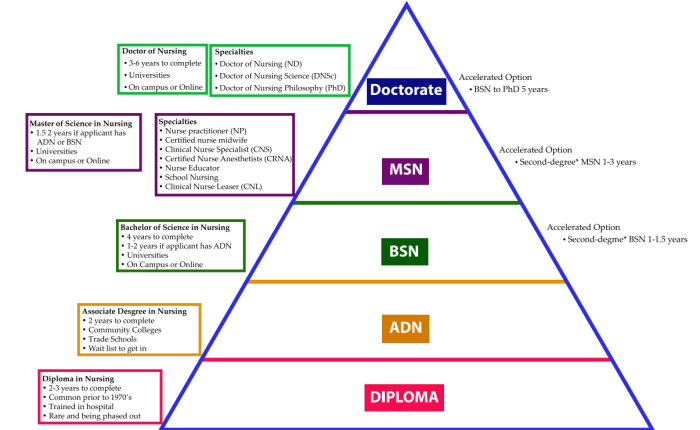All nate specialties are offered at two levels they are – In the realm of NATE specialties, a remarkable duality exists: each specialty is meticulously crafted and delivered at two distinct levels. This captivating arrangement presents aspiring educators with a unique opportunity to tailor their professional development journey to their individual needs and aspirations.
Embark on a voyage of discovery as we delve into the intricacies of these two levels, unraveling their characteristics, benefits, and implications.
The first level, aptly named Level 1, serves as a foundational pillar for aspiring educators. It equips them with the essential knowledge, skills, and dispositions necessary to navigate the complexities of the classroom. Level 2, on the other hand, represents a pinnacle of specialization, propelling educators to the forefront of their field through advanced coursework, rigorous assessments, and immersive experiences.
Introduction

The concept of “all nate specialties are offered at two levels” refers to the practice of classifying nursing specialties into two distinct levels based on their complexity, scope of practice, and educational requirements. These levels are known as Level 1 and Level 2 specialties.
Level 1: Basic Specialties: All Nate Specialties Are Offered At Two Levels They Are

Level 1 specialties are designed for nurses with a basic level of education and experience. They typically require a Bachelor of Science in Nursing (BSN) degree and a minimum of one year of clinical experience.
- Examples:Medical-Surgical Nursing, Pediatrics, Obstetrics
- Benefits:Broad scope of practice, high demand in healthcare settings
- Limitations:Limited advanced practice opportunities
Level 2: Advanced Specialties

Level 2 specialties are designed for nurses with advanced education and experience. They typically require a Master of Science in Nursing (MSN) or Doctor of Nursing Practice (DNP) degree, as well as several years of clinical experience.
- Examples:Nurse Practitioner, Clinical Nurse Specialist, Certified Registered Nurse Anesthetist
- Benefits:Expanded scope of practice, higher earning potential
- Limitations:Requires additional education and experience, may face competition for positions
Comparison of Levels
| Specialty Type | Requirements | Benefits | Limitations |
|---|---|---|---|
| Level 1 | BSN, 1 year experience | Broad scope of practice, high demand | Limited advanced practice opportunities |
| Level 2 | MSN/DNP, several years experience | Expanded scope of practice, higher earning potential | Requires additional education and experience, may face competition |
Question & Answer Hub
What are the key differences between Level 1 and Level 2 NATE specialties?
Level 1 specialties focus on foundational knowledge and skills, while Level 2 specialties delve into advanced concepts and practices.
What are the benefits of pursuing a Level 1 NATE specialty?
Level 1 specialties provide a strong foundation for educators, enhancing their understanding of core educational principles and methodologies.
How can I determine which level of NATE specialty is right for me?
Consider your career goals, areas of interest, and prior experience when selecting the appropriate level of NATE specialty.

